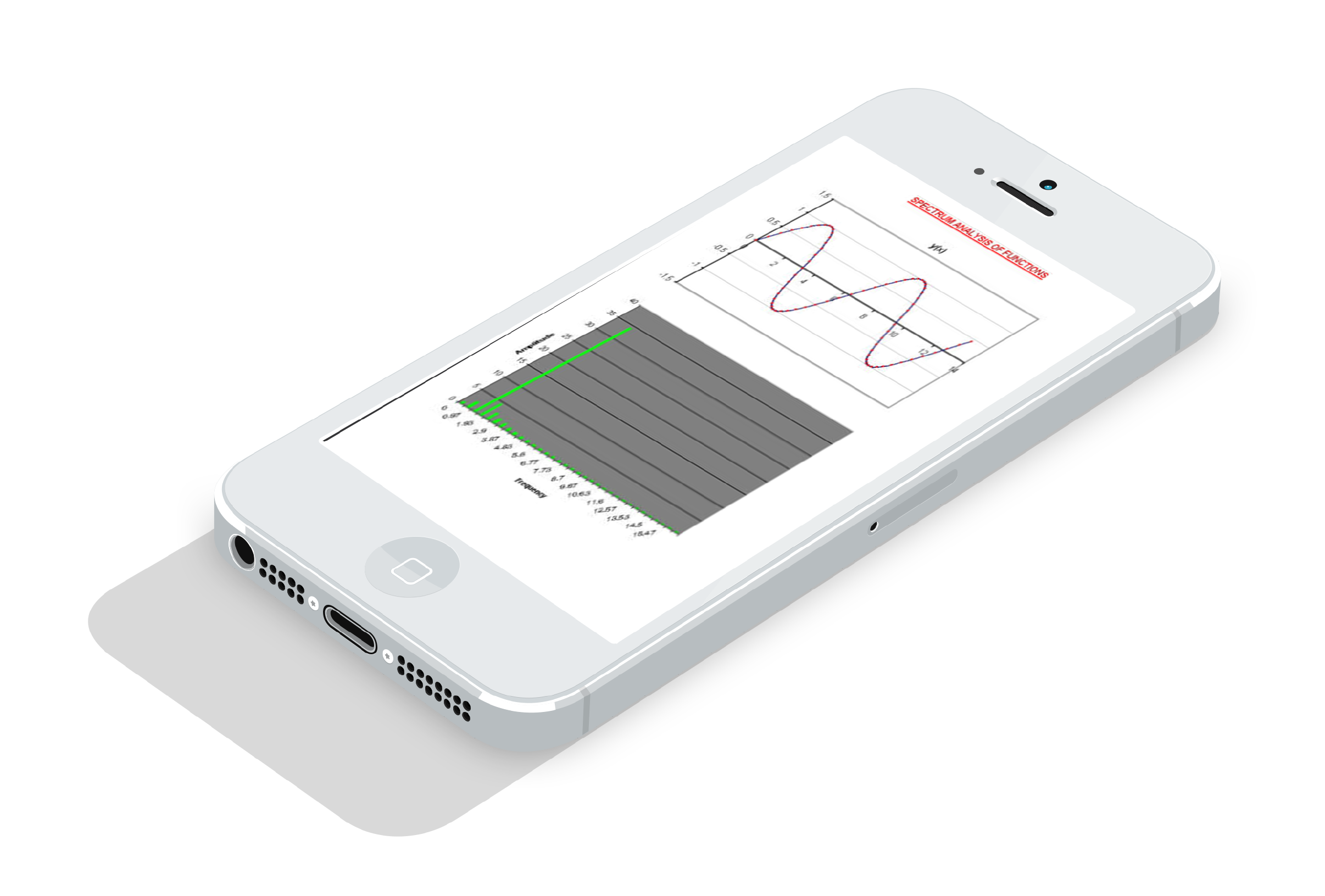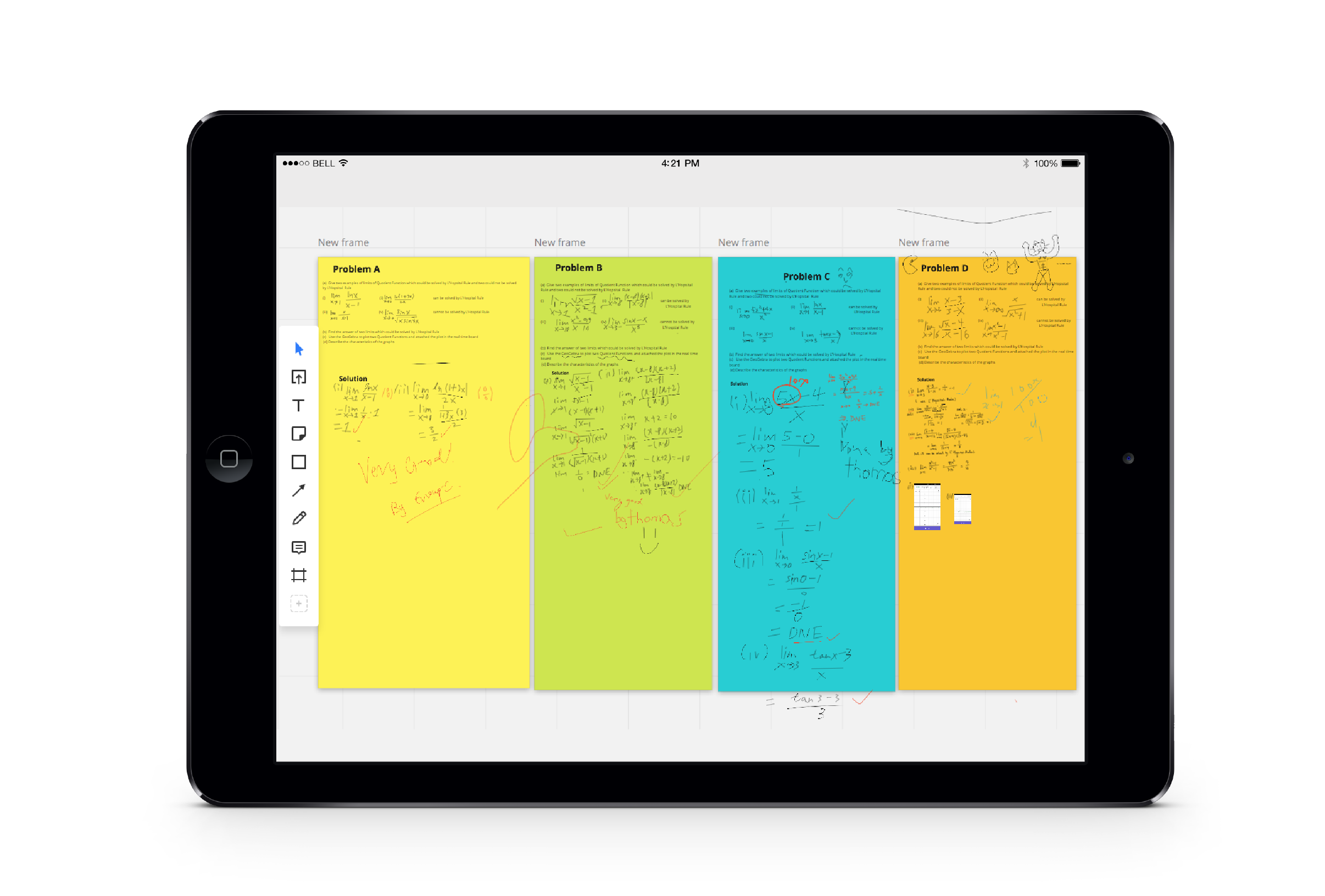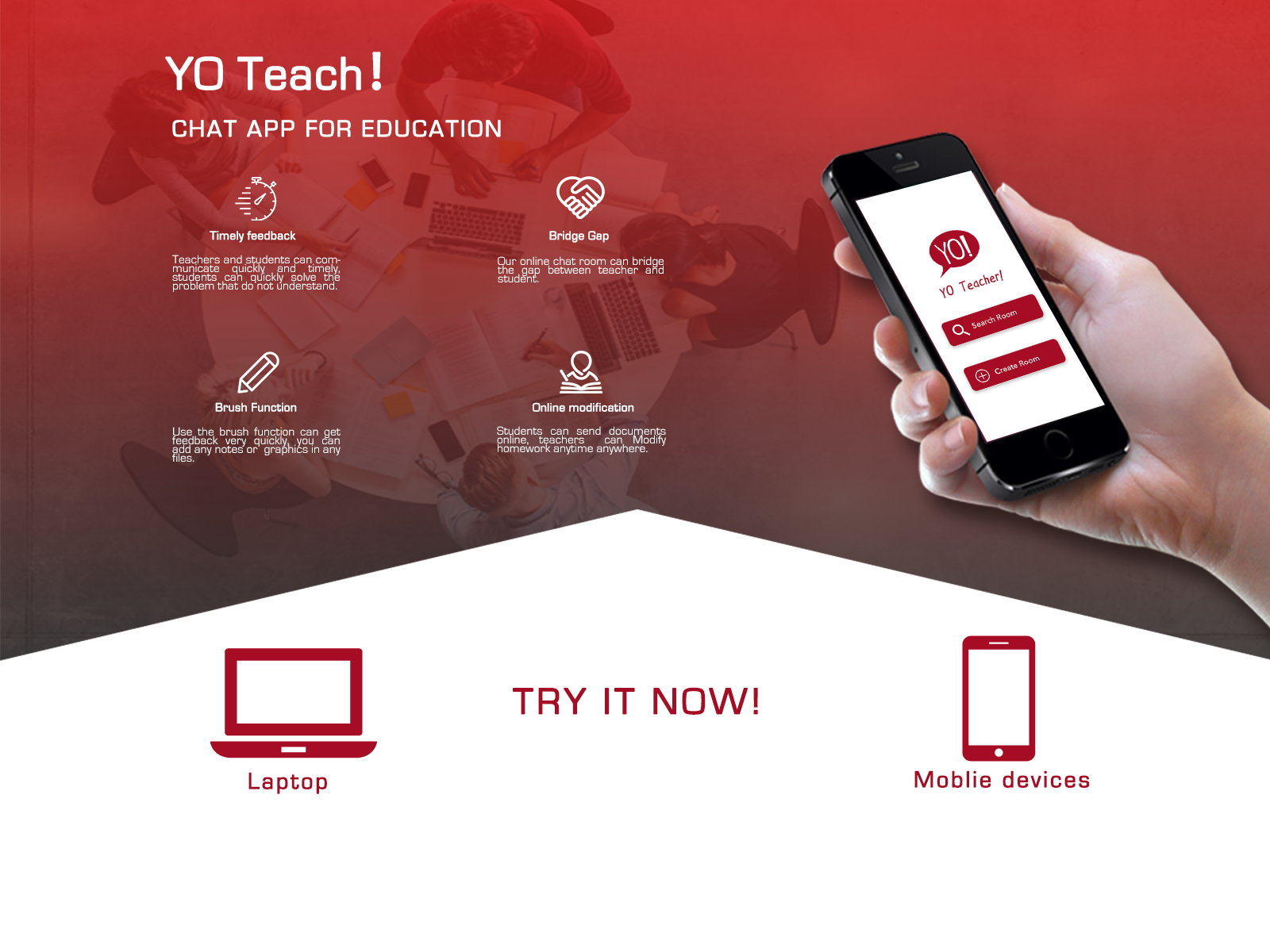Problem Based Collaborative Learning using Interactive Online Whiteboards in Mathematics:
PALMS joint work with Dr. Oi-Lam NG (CUHK)
In a regular “normal sized" mathematics tutorial, of say, thirty students, cooperative problem based learning may look students getting in groups of 3 to 6, to solve a mathematical problem posed by the instructors. Students would then try to discuss, brainstorm, and solve the problem in groups, and report the answer in groups to the instructor.
We explore the use of an online interactive whiteboard (Realtimeboard) to enhance problem based cooperative learning . We observed that 90% of the 50-minute long tutorial sessions involved some degree of teacher-student or student-student interaction, in contrast to 10% in traditional tutorial settings where classic whiteboards were used. We suggest that the affordance of RealtimeBoard which promoted actively learning include:




We also found a statistically significant increase in Calculus Concept Inventory (Epstein, 2004) test scores when comparing students in tutorial sections using the interactive online whiteboards and ones without. We are working currently with a secondary school who is also trying out problem based collaborative learning with interactive online whiteboards.
Increasing Student Questions in Large STEM Classes:
PALMS Team
For large classes, which we define informally here as courses with over 100 student enrolment in each lecture section, it’s hard to employ the active pedagogy “Question and Answer (orally)".
The main reasons why students do not want to ask questions in a large class are
- they do not know how to formulate their questions, or informally, they are afraid to they’ll ask “dumb" questions;
- they are passive learners and have been trained culturally not to ask “speak up and ask questions" ; and
- they fear they will be ridiculed, or be perceived as unintelligent.
To solve this problem, the PALMS team has created the “YoTeach!", an online web-based anonymous chatroom and/or “backchannel" used for conversation that goes alongside a primary activity, presentation or discussion. It has the added additional feature of drawing functionality, which is especially important in STEM when students need to write a math equation, draw a force diagram in physics, or the structure of a molecule in chemistry. Please go to the link: YoTeach! Educational App
Dr. Dennis LEUNG (AP), Dr. C.L. MAK (AP), Dr. Joe LAM (ABCT)
Laboratory teaching is an indispensible part of science education. Performing experiments can train students’ observation, analysis and presentation skills, and fortify their classroom learning experience in engaging ways. But often laboratory teaching support is absent due to various reason (complexity and hazards associated with experiments, captical costs, etc.). particularly for 1st year subjects and general education courses. Besides, typical lab sessions have fixed schedules and durations, which cannot accommodate students with diversified learning abilities.
Since 2010 the Department of Applied Physics of PolyU has been developing an award-winning remote-controlled physics experiment platform, and a mobile apps that allow data acquisition using sensor in mobile phones. Students can perform, and repeat, physics experiments outside laboratories according to their schedules, thus facilitating the learning of all students.
In this sub-project we expand the idea to biology courses. We will establish a remote-controlled experiment for exploring the Greenhouse effect. Besides, using cheap and portable sensors ,we will construct apps-controlled environmental detection units for monitoring the air quality in various locations in Hong Kong. The setups will be piloted in a general education course in PolyU, and has good potential for deployment in similar courses in other sister institutions in Hong Kong.

Mobile app for Fourier Transform and Spectral Analysis.
Dr. Alan LAU (EE)
Linear systems, Fourier Transform and Spectral Analysis are the cornerstone of undergraduate Science or Engineering curriculum and it is one of the core subjects for universities worldwide. As the subject matter relates to signal and its analysis, a mobile device is an ideal platform to demonstrate such important and fundamental concepts as sound and photos is easily accessible from everyday usage of mobile devices.
There are a lot of computer aids, interactive media or mobile apps to help visualize the concepts, but most apps in the market have very restricted contents and are inadequate as an official learning aid in formal course settings. In addition, different disciplines have different notational preference and specific focus on this broad topic, rendering the presentation of most current apps not comprehensive and flexible enough.
We aim to develop a proper iOS app from a teacher’s perspective so that it is comprehensive and flexible enough for courses in various disciplines such as physics, mathematics, engineering and computer science across Universities worldwide.






